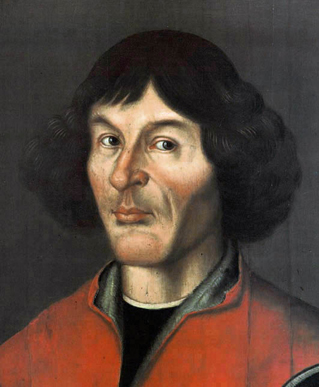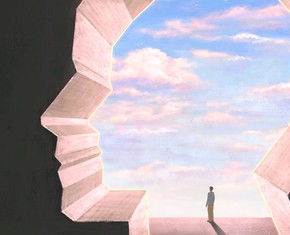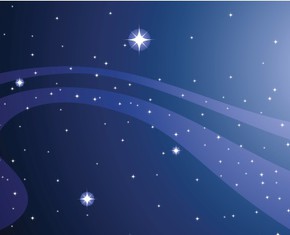The views expressed in our content reflect individual perspectives and do not represent the authoritative views of the Baha'i Faith.
…the divines of their day have hindered the people from attaining unto the way of truth. To this testify the records of all the scriptures and heavenly books. – Baha’u’llah, The Book of Certitude, p. 161.
Nicholas Copernicus nurtured a most radical notion; an idea that threatened the established order and even his own life.

Nicholas Copernicus
In fact, he was so afraid that the world was not ready for his revolutionary scientific hypothesis that Copernicus waited to publish his thesis until he lay on his death bed on May 24, 1543. His theory that the earth revolved around the sun defied conventional wisdom and religious tradition. The world had to wait another 67 years before another brave soul–Galileo Galilei, using a crude telescope in 1610–could test the Copernican hypothesis. Galileo proved one of the implications raised by Copernicus’ detractors who had argued, “If your doctrines were true, Venus would show phases like the moon.”
Galileo’s development of the spyglass had already earned the admiration of the military and political leaders of Venice. His invention enabled the city to see attacking war ships well in advance of their arrival–an innovation so valued they rewarded him with a lifetime pension.
Now Galileo turned his attention to the consideration of the heavens. Over a period of months at the end of 1610 he observed Venus go through a full set of phases. He reasoned that if Venus revolved around the earth it would never be possible to see it completely illumined while on earth. This would only be possible if Venus were a star generating its own light.
Galileo concluded his observation supported the Copernican hypothesis that the earth revolves the sun.
However, this did not accord with church tradition. Several of his contemporaries, including astronomers, professors and clerics lodged complaints against Galileo, which led the Catholic Church to condemn his conclusion as “false” and “altogether contrary to the Holy Scripture.” After publishing Dialogue Concerning the Two Chief World Systems in 1632, to reconcile the observations of science and the interpretations of the Bible, Galileo was tried by the Inquisition. He was found “vehemently suspect of heresy,” his publications banned, and confined under house arrest for the remaining nine years of his life.
After 383 years, the Copernican theory and Galileo’s proof have prevailed. So why did the church so adamantly oppose Galileo and his science? After all, he was a devout Catholic, whose innovations had already done much to improve his nation and the world.
The simple answer: his revolutionary thesis challenged not only the way we see the heavens from earth, but also how we discover the kingdom of heaven on earth. His discovery upended both how we understood God’s creation, and how we go about understanding the command of God.
Galileo’s insights challenged the very root of religious authority, by allowing people to discover their own interpretations of reality, and by extension the meaning and application of the Word of God. In this regard Copernicus’s hypothesis was judged wrong less because of the radical thesis advanced, but more because the clerical authorities believed only the Church had the right to interpret God’s Will–and by extension the workings of His wonders in the universe.
One of the hallmarks of maturity is the capacity to appreciate how one’s frame of reference impacts their observation of and interaction with reality. This realization, supported by the experiments of Nobel Prize-winning theoretical physicist Werner Heisenberg, helps us appreciate the impact of perspective on observation.
The Heisenberg Uncertainty Principle states that that all matter has both state (stationary) and wave (dynamic) properties and the attempt to measure one compromises the other. In other words, how you evaluate any phenomenon actually affects what you observe, for it ultimately it determines what you see. The Baha’i teachings suggest the same principle, and did so long before Heisenberg:
The retina of outer vision though sensitive and delicate may nevertheless be a hindrance to the inner eye which alone can perceive. The bestowals of God which are manifest in all phenomenal life are sometimes hidden by intervening veils of mental and mortal vision which render man spiritually blind and incapable, but when those scales are removed and the veils rent asunder, then the great signs of God will become visible and he will witness the eternal light filling the world. The bestowals of God are all and always manifest. The promises of heaven are ever present. The favors of God are all-surrounding, but should the conscious eye of the soul of man remain veiled and darkened he will be led to deny these universal signs and remain deprived of these manifestations of divine bounty. – Abdu’l-Baha, The Promulgation of Universal Peace, p. 90.
Over the course of the next four articles in this short series we will consider the pioneering work of three separate Christian millennial scholars, whose research of the Bible led them to conclude that the Return of Christ would occur in the period around 1840. We will consider their frame of reference, process and conclusions in the light of scientific reasoning. Our purpose–the development of a robust frame of reference that will allow us to evaluate the relationship between the revelation of Jesus the Christ and the advent of Baha’u’llah.
You May Also Like
Comments

















This update adds relevance for seekers in the 21st century who are concerned about the elites in religions today. This is consultation.